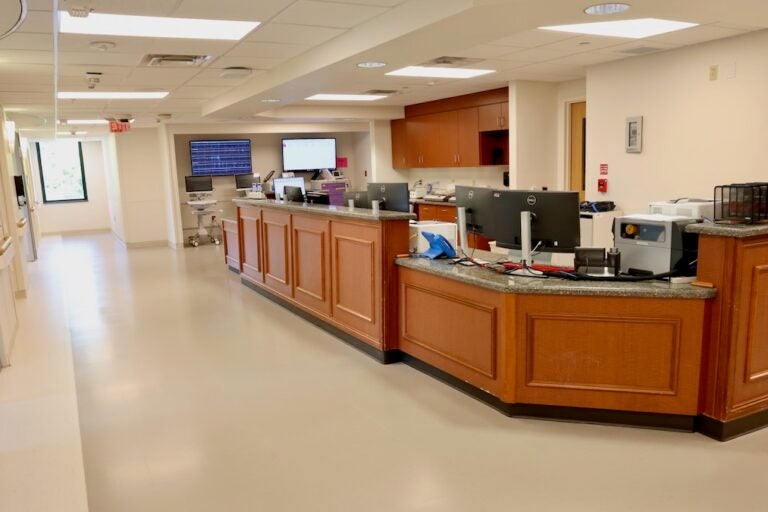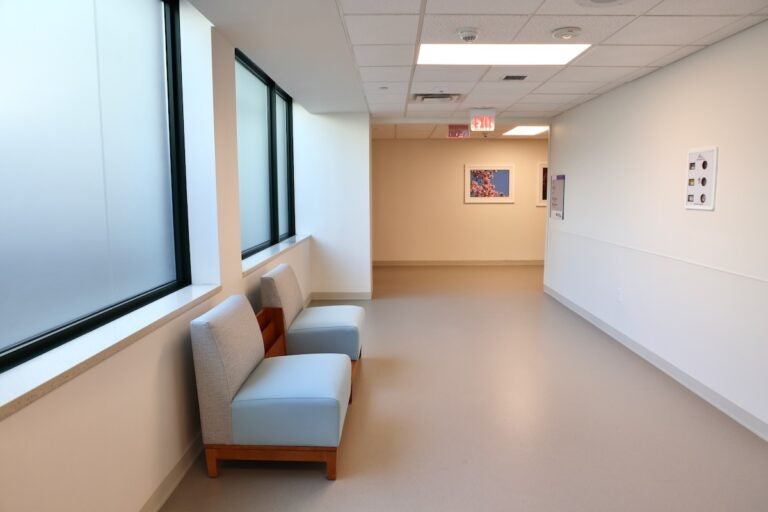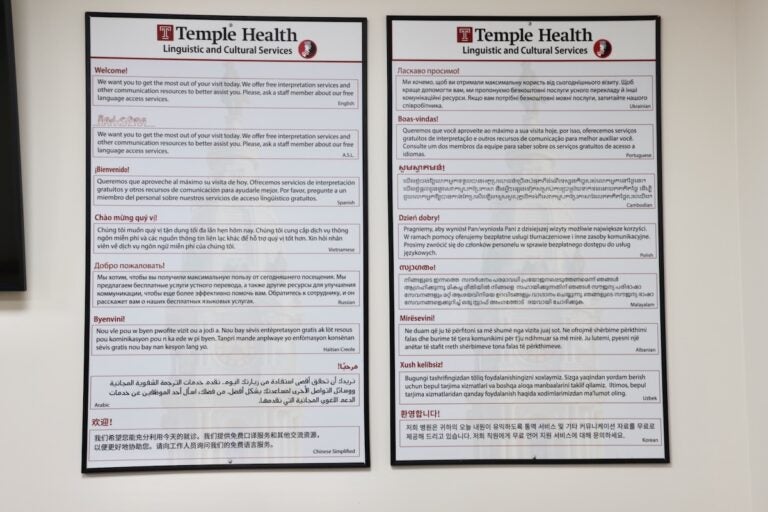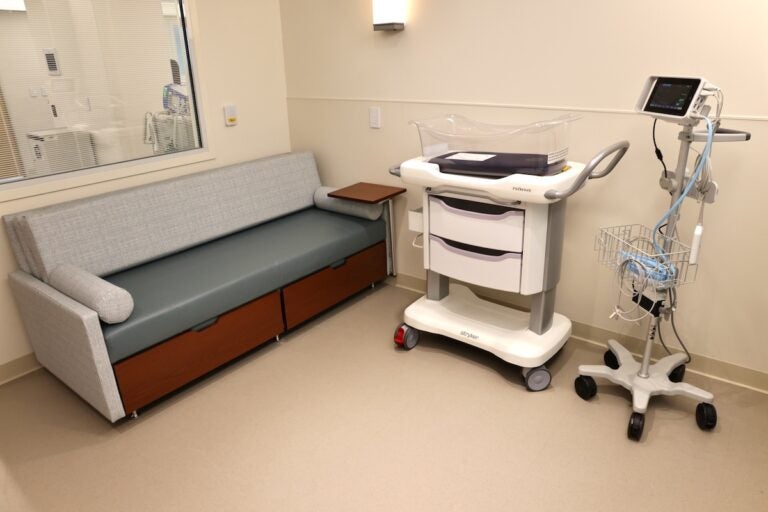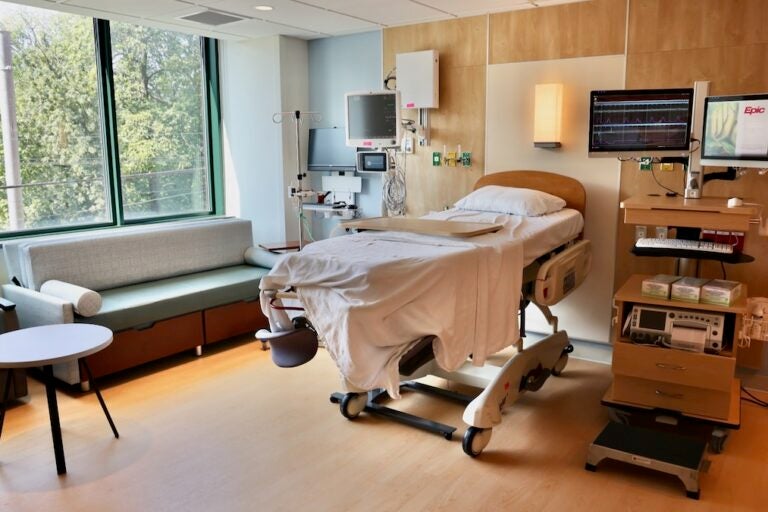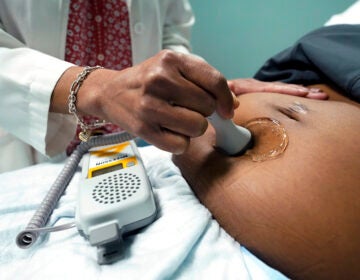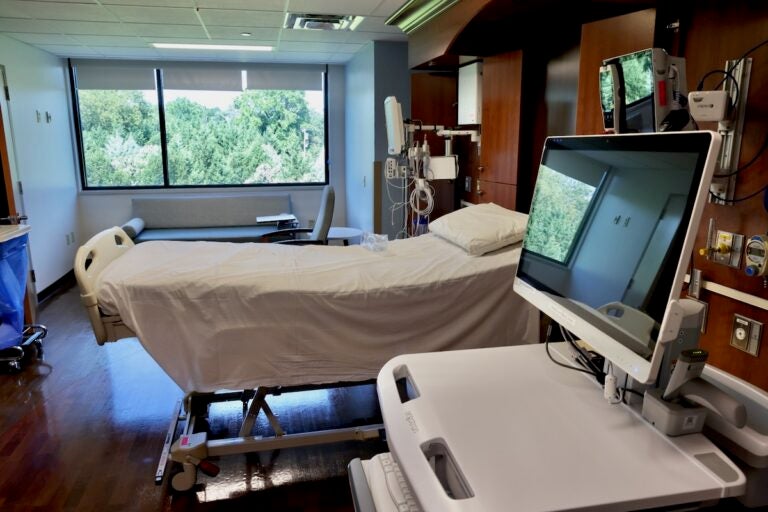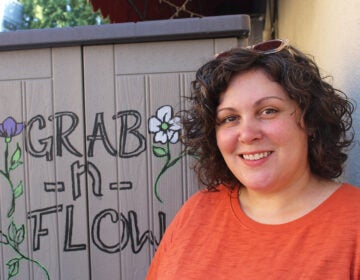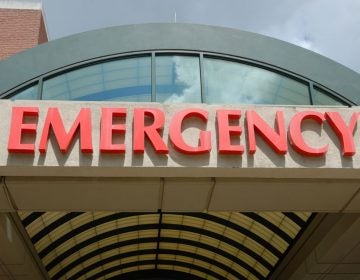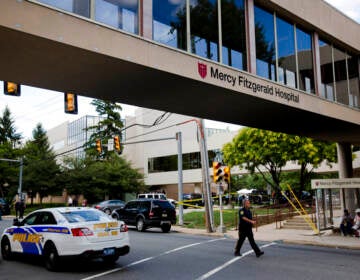New Temple Health maternity hospital will offer private labor and delivery rooms, expanded NICU services
The Women and Families Hospital will begin offering childbirth and maternity care Sept. 3.
Listen 1:56
The new Temple Women and Families Hospital officially open Sept. 3, 2025. The hospital will perform all labor and deliveries for the Temple Health system, including C-sections, and have a Level III neonatal intensive care unit. (Emma Lee/WHYY)
From Philly and the Pa. suburbs to South Jersey and Delaware, what would you like WHYY News to cover? Let us know!
All labor and deliveries across the Temple Health system will soon take place at the new Women’s and Families Hospital in North Philadelphia, which opens inpatient services on Sept. 3.
As a specialty medical facility dedicated to childbirth and maternity care, officials said they hope to serve more patients and expand services across the city at a time when other labor and delivery programs are shrinking or closing regionally and statewide.
“We know that there’s a maternal desert out there,” said Sharon Kurfuerst, the facility’s executive director. “Temple identified the need, listened to the community who identified that need and really invested in being able to close that gap.”
Temple Health performs an average of 2,000 deliveries each year, according to state data. Up until now, the majority of births occurred at the system’s Main Campus hospital on Broad Street, where space for laboring mothers is limited.
By comparison, the new health campus located at the former Cancer Centers for America facility in the Lawncrest neighborhood has five floors that are home to both inpatient and outpatient services.
It will employ about 385 people, including maternal and pediatric doctors, nurses and other health providers.
Postpartum recovery, neonatal care and high-risk cases
During a recent tour, Kurfuerst showed off a large, private delivery room with a hospital bed at the center and a pullout sleeper sofa nearby.
“So, a birthing parent is able to labor here, support persons are able to stay,” she said.
Bright lights are built into the ceiling and get turned on during the delivery so that doctors and nurses can see clearly. A bassinet attached to weighing scales and monitors was set up in one corner of the room, which gets used immediately following birth.
“This is where baby gets quickly assessed, taken care of,” Kurfuerst said.
Down the hall, two surgical operating rooms were equipped for patients with scheduled or unplanned C-section deliveries.
Postpartum recovery, neonatal care and high-risk cases
After labor and delivery, families are put in postpartum maternity rooms for recovery. Each of the 32 private suites have their own bathrooms and recliners for overnight guests and visitors.
There’s also a bassinet on wheels for newborns to stay in the room with parents until the family goes home.
“We know that rooming-in of the baby promotes better clinical outcomes for both baby and mom,” Kurfuerst said. “Better bonding, better breast-feeding chances, those kinds of things.”
Babies can also spend time in a separate nursery where health providers can perform exams, watch over them while mothers recover and treat them for mild or moderate health conditions like jaundice or withdrawal from opioids and substance exposures in utero.
Newborns that need more serious care will be brought to the hospital’s neonatal intensive care unit, which has 41 beds — “almost double” the size of the NICU at Temple’s Main Campus hospital, Kurfuerst said.
On the second floor is an eight-bed intensive care unit for patients who may experience complications during childbirth from high-risk pregnancies or other conditions, and need more extensive specialty care, evaluations or additional procedures.
In extreme cases, Kurfuerst said patients who need very specialized care and services can be transferred to the Main Campus if necessary.
Improving long-term maternal outcomes
In addition to labor and delivery and neonatal care services, the Women and Families Hospital offers outpatient health care, including radiology, behavioral health, OB-GYN, pediatrics and cardiology.
Many of those offices are already open and seeing patients.
On the ground floor, there’s also an office for the Pennsylvania Special Supplemental Nutrition Program for Women, Infants and Children. Staff there can help enroll mothers and families with low incomes and get them help with buying formula, breastfeeding education or nutrition guidance.
The big-picture goal in opening the new health campus is to increase access to community health care broadly and crucial wraparound services, Kurfuerst said.
“We want to reduce infant mortality rates, maternal mortality and morbidity,” she said. “To do that, you need focused care and you need people to be able to access the care when they need it.”
WHYY is your source for fact-based, in-depth journalism and information. As a nonprofit organization, we rely on financial support from readers like you. Please give today.





